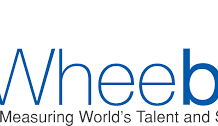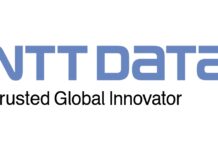
More than nine out of ten real estate companies are looking to invest in connected solutions for their properties. The main reason is that it can lead to lower costs. But the lack of financial resources can lead to a slowdown in development.
The digitization of society is proceeding at a frantic pace. Over the years, the need for and demand for digital solutions has been increasing both from companies and individuals. Great demand has led to an increase in supply. Modern digital and connected solutions contribute to everything from improving sustainability and reducing costs to making everyday life easier for many people.
Easily accessible casino entertainment without a Swedish license
With the development of digital technologies in recent years, we can solve most of our tasks online. Whether it's buying food or clothes, booking flights or hotels, or just having fun with online games.
In particular, the gaming industry is one of those that have benefited a lot from digitization. For example, Swedes are increasingly playing in casinos, which is likely due to the fact that modern online casinos are becoming more accessible. Find out about the Long Litigation Against the Legends Resort and Casino in Arkansas by visiting this page.
Today, Swedes can visit online casinos from many parts of the world and start playing with just a few clicks. This is because many gaming companies are actively working to simplify the digital registration and transaction processes, among other things, and to make them more secure.
In addition, most of the games and tools are mobile-friendly, which means you can usually play smoothly even when you're not at home in front of your computer. This is something that many players are asking for, which is why companies have had to put a lot of emphasis on development in order to attract customers.
Growing proptech market
The gaming industry and other forms of entertainment are an important part of many people's daily lives. But in terms of immediate needs, the real estate industry plays a central role, and now they are pushing gas in the digitization race. Patrick Lennerberg, Advania, told Computer Sweden that the development of digital technologies in real estate is reminiscent of the IT industry of the 90s.
There has been talk of “proptech” for several years now. Simply put, these are new technologies designed for the real estate industry. This technological trend has taken off in earnest and, according to market research firm IDC, is now valued at around 40 billion SEK across Europe.
Development is expected to continue at a rapid pace as the urban planning-focused proptech and plantech market is expected to grow at 17 percent per annum over the next five years. By 2026, IDC predicts that half of the cities and municipalities in Europe will implement and use proptech or planttech technologies.
Energy monitoring is the next big real estate investment
Proptech is considered an important part of the development of digital and smart homes. But it is a broad term that includes many different industries. One of the main reasons why proptech is gaining more interest from real estate companies is its contribution to sustainability.
Analyst company Navet Analytics commissioned by Schneider Electrics conducted a survey among 125 private, regional and municipal real estate companies. Respondents include operations managers, energy managers, real estate managers and technical managers. A large percentage of them say energy monitoring will be the next investment in connected solutions in the industry.
Today, there are advanced IoT solutions that can easily monitor power consumption on their own and raise an alarm when something abnormal happens. The data can be evaluated and processed by AI (artificial intelligence) based on parameters such as weather forecasts and the number of people in the building. This can provide effective positive effects on both the climate impact and the economy of real estate companies.
Read also: Online Gaming Industry Predictions: Sweden 2023
- Viral disease infectious mononucleosis
- Train Life: A Railway Simulator Review – Railway Lyrics
- รางวัลที่1
- Why Indian bettors choose 1Win bookmaker?
- Bitcoin mixer - Bitcoin Blender - BTC mixer - Bitcoin Blender





























































